Farmers light bonfires to send election message
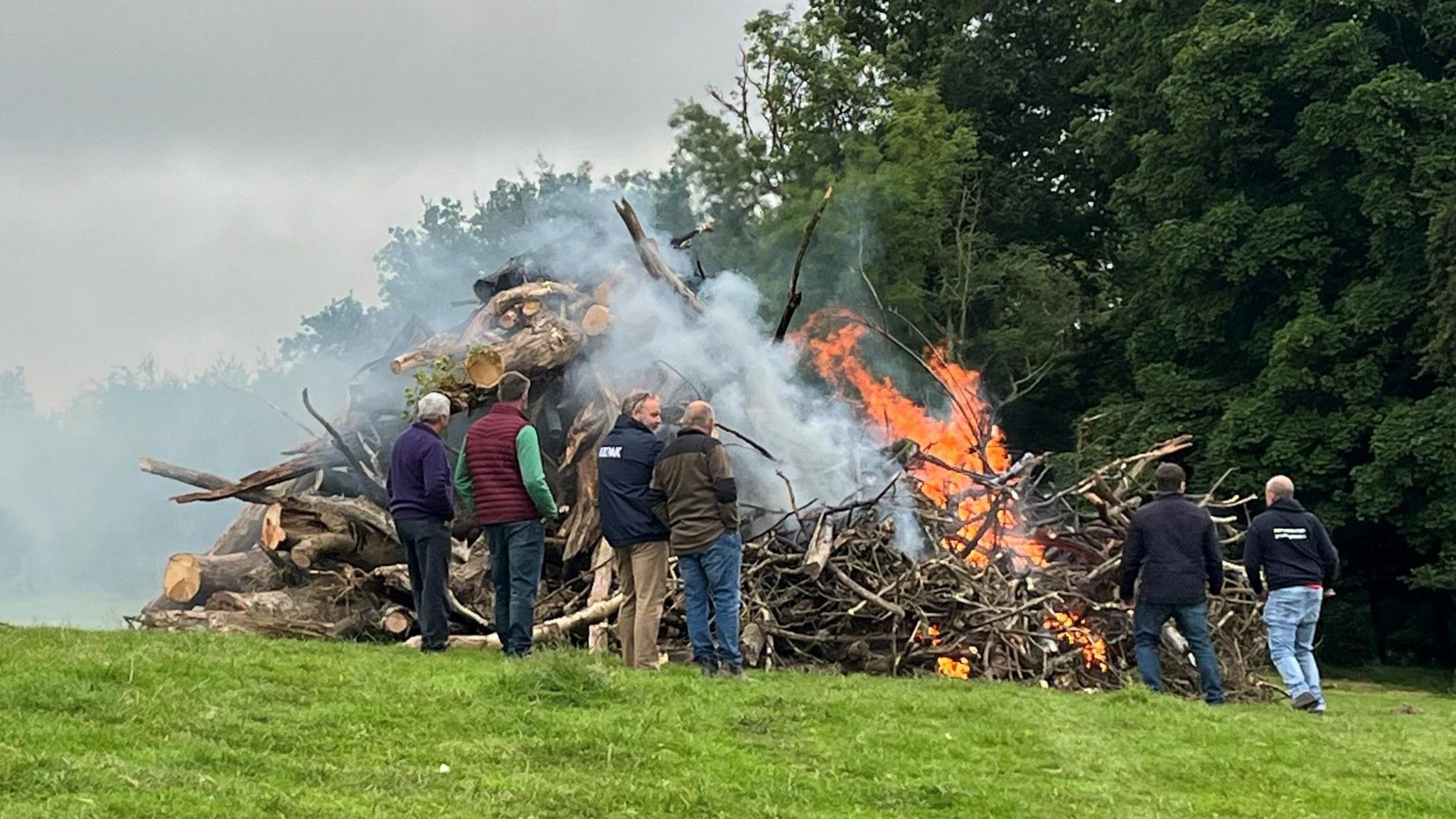
Farmers light a bonfire at Shadog Farm, Pentre-cwrt, near Llandysul, Ceredigion
- Published
The farmers' pressure group Enough is Enough lit bonfires on farms around Wales on Monday evening to highlight the importance of agriculture before the general election.
Events were held in Ruthin, Denbighshire, Pennal near Machynlleth, Brecon, Powys, Aberystwyth and Rhydlewis, Ceredigion.
The main bonfire was held at Shadog Farm, Pentre-cwrt, near Llandysul, Ceredigion.
The event was supported by farming unions and rural businesses that rely on Agriculture.
Who should I vote for and what are the parties promising?
- Published3 July 2024
Parties target protesting farmers in election pitch
- Published17 June 2024
No plans to pause new farming subsidy scheme
- Published15 April 2024
Aelwyn Evans, who runs Caegwyn Farm Supplies in Llanwrda, Carmarthenshire, said: "Farmers are feeling very low.
"They come into my shop on a daily basis, complaining about what the government is trying to do to farming. It's farmers that keep businesses like ours going.
"Every rural business is concerned at the moment."
Although agriculture is a devolved issue, Gary Howells said farming had not been given enough prominence during the election campaign.
"As a group, we're not very happy with how food security and agriculture has been talked about during the pre-election campaign," said Mr Howells.
"We've heard nothing about it. We talk a lot about the cost of food in the supermarkets.
"We witnessed with the Ukraine war, what can happen in a very short time. We have to make sure that we sustain our self-sufficiency."
Mr Howells also voiced frustration with a "lack of progress" in negotiations with the Welsh government over issues like the new Sustainable Farming Scheme (SFS) and new rules to control agricultural pollution, due to be introduced in October.
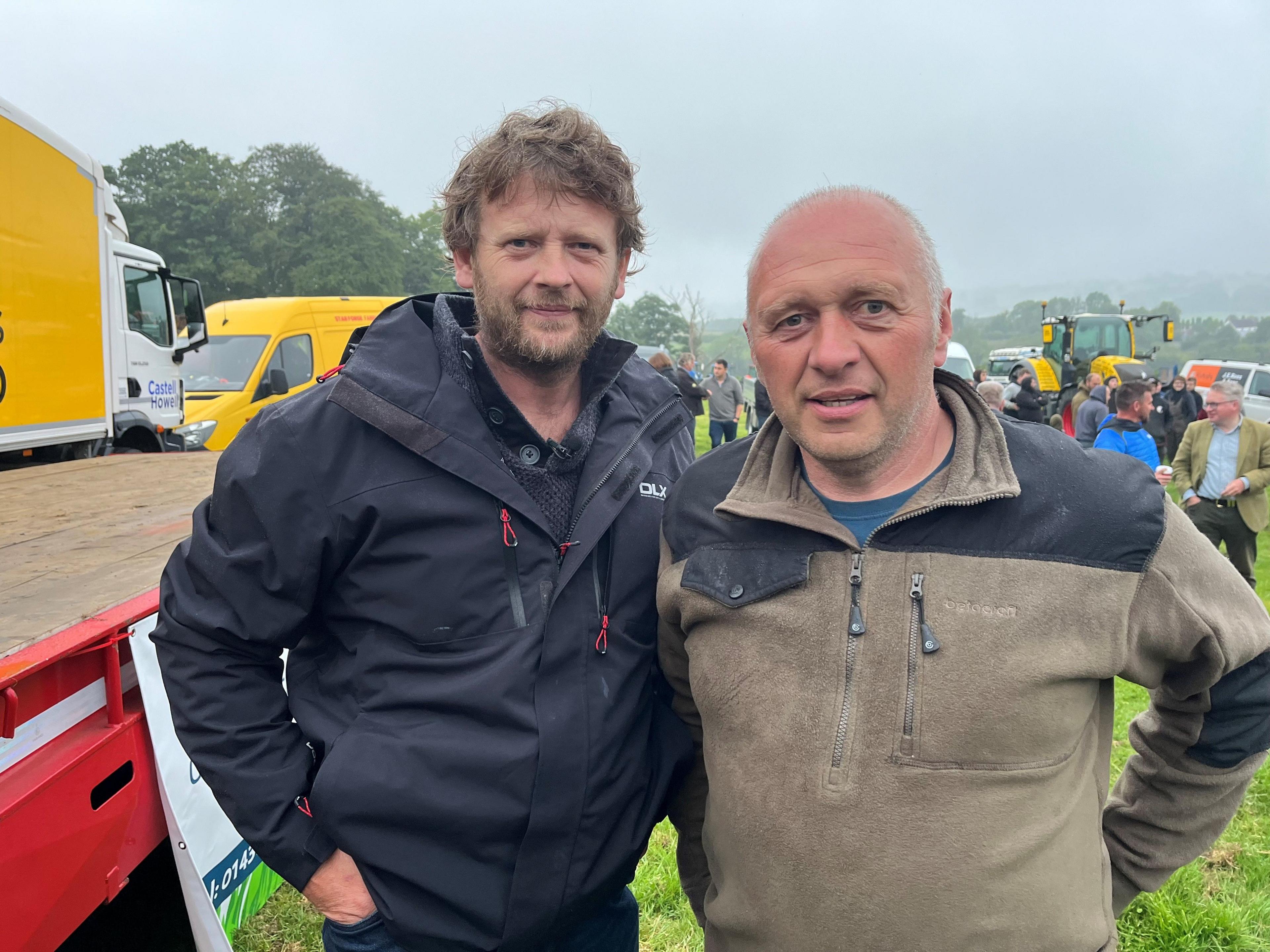
The main bonfire was held on Shadog Farm, run by Gary Howells (left), with Aled Rees
The Welsh government recently announced it was delaying the introduction of its Sustainable Farming Scheme until 2026
The SFS is the Welsh government's big plan for funding the farming industry after Brexit, which puts more emphasis on the environment.
Under the proposals, farmers would be paid for actions resulting in environmental, animal welfare and social outcomes - over and above minimum legal requirements.
In order to gain access to the scheme, farmers would have to commit to having trees on 10% of their land, and earmark 10% as wildlife habitat. The scheme has been hugely controversial and has sparked protests.
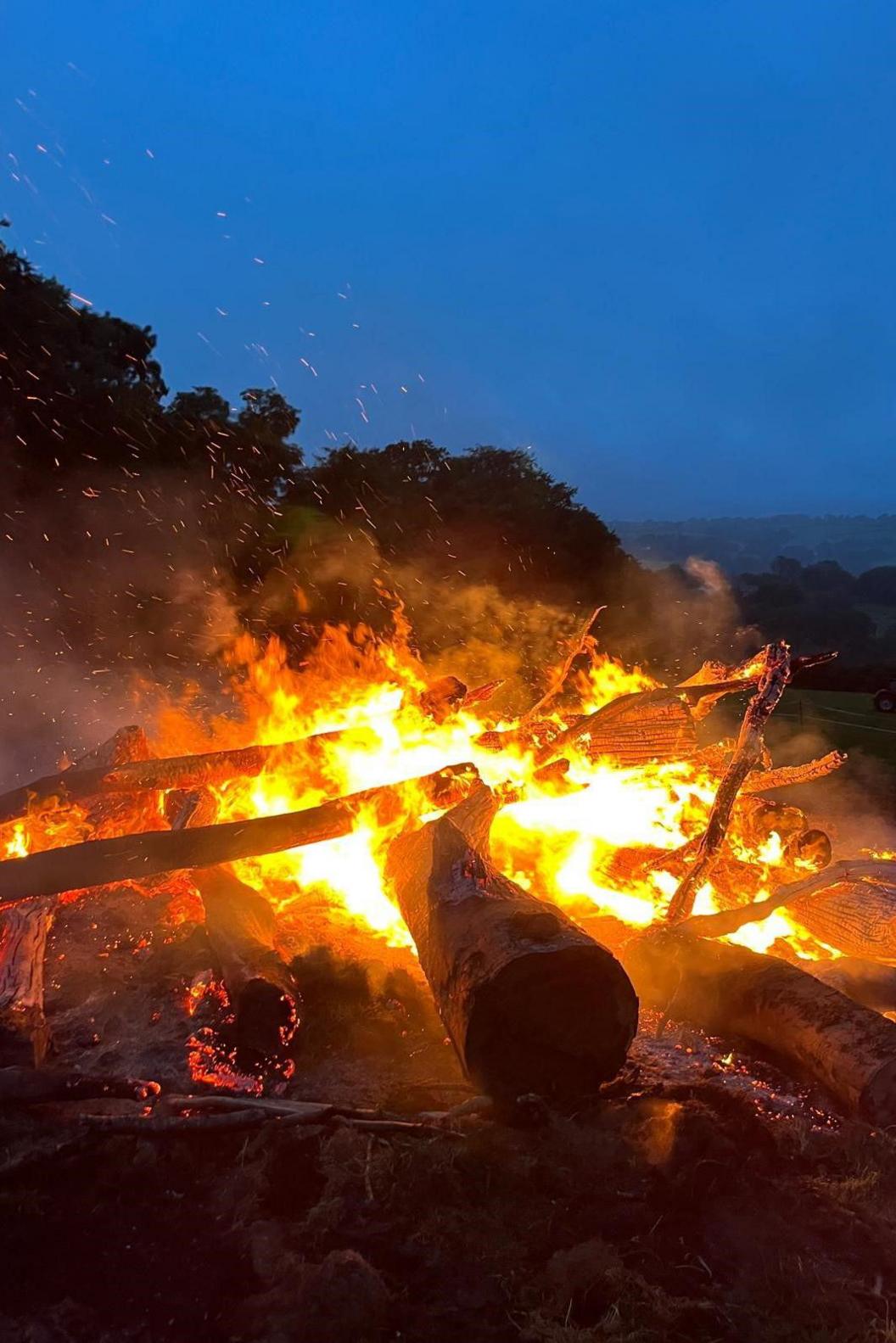
Farmers across Wales feel farming has not been given enough prominence during the general election campaign
In response a Welsh government spokesperson said: "In May we introduced a new timeframe for the Sustainable Farming Scheme as part of a commitment to listening to farmers and rural communities.
"The scheme will now begin in 2026, giving more time to engage with key partners. We will establish a SFS preparatory phase during 2025 to prepare farmers for entry into the new scheme."
They added that the cabinet secretary for climate change and rural affairs had hosted two meetings of the SFS Roundtable which gives a wide range of stakeholders the opportunity to work together on the design of the scheme to resolve the remaining challenges.
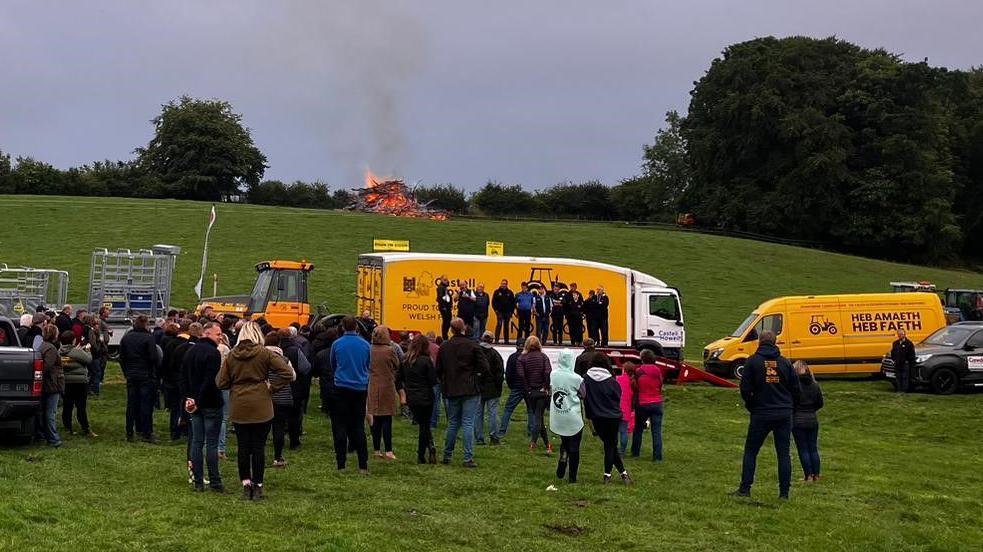
Supporters of the farmers' pressure group Enough is Enough want more attention paid to agriculture
Mr Howells said that farmers were still waiting for details on how to make their farms compliant with new rules to control agricultural pollution.
A Welsh government spokesperson said: "We are beginning work to review agricultural pollution regulations, which is crucial to achieving our shared aims of an economically and environmentally sustainable farming sector.
"The process of appointing an independent, external chair to oversee the review is underway and we look forward to sharing more information shortly.
"Since the introduction of the control of agricultural pollution regulations, we have offered over £31m of direct support towards on-farm infrastructure investments to help farmers meet the requirements."
Related topics
- Published6 March 2024

- Published6 July 2022
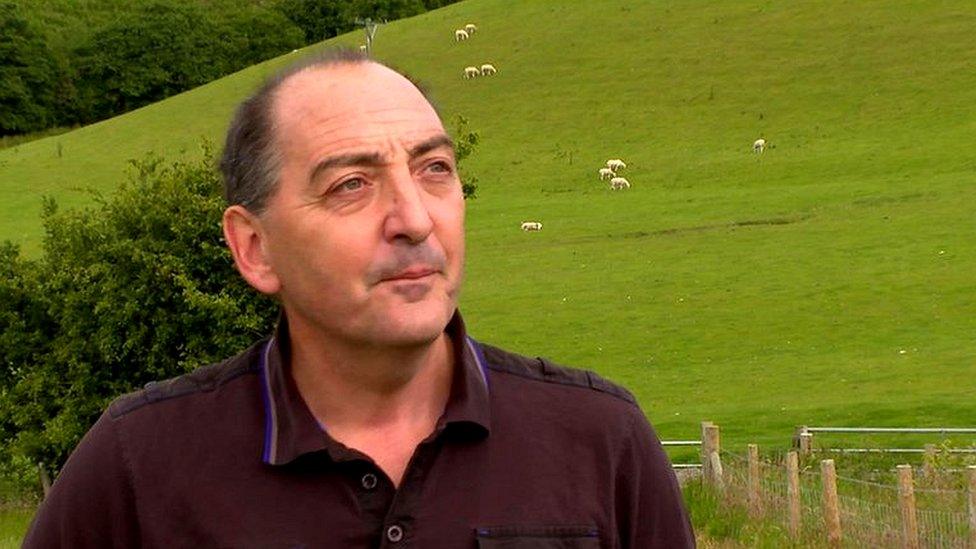
- Published22 March 2022
